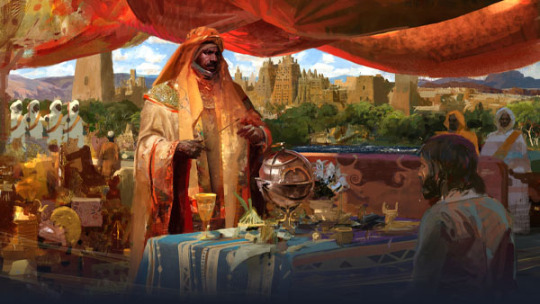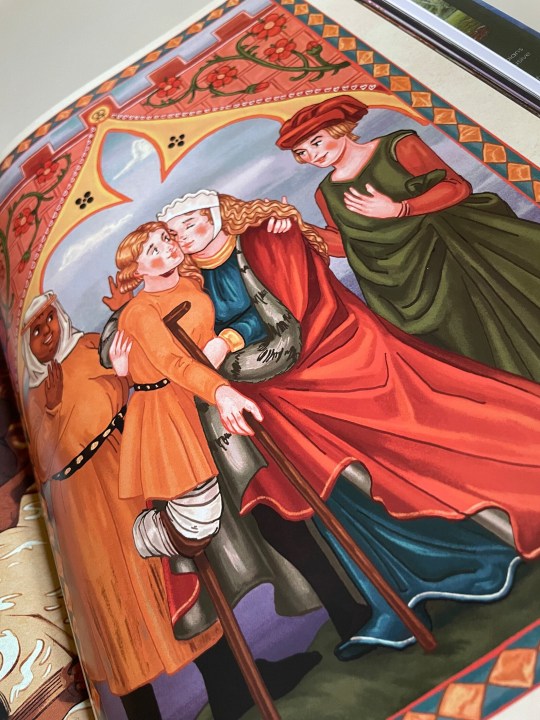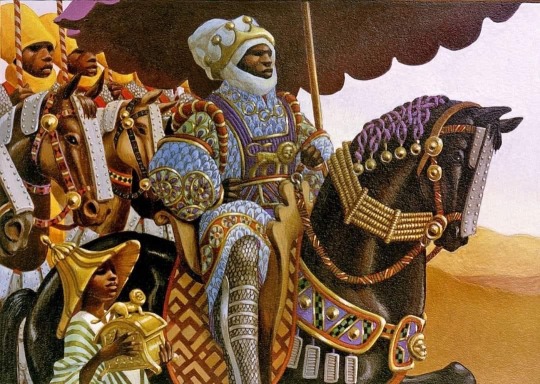#Mali History
Text
The Mali Empire: A Historical Overview of West Africa's Influential Power
The Mali Empire, a majestic realm that left an indelible mark on the history of West Africa, stood as a symbol of power and prosperity from around 1226 to 1670. Founded by Sundiata Keita, the empire flourished under the rule of renowned leaders like Mansa Musa (Musa Keita), gaining widespread admiration for the opulence of its rulers and the far-reaching influence of its language, laws, and…

View On WordPress
#African History#Mali Empire#Mali History#Mandinka kingdom#Mansa Musa#Sosso Empire#Sundiata Keita#West African#West African history
6 notes
·
View notes
Text
#pan africanism#afrikaans#african union#black lives matter#police brutality#black history#africa#niger#black unity#black power#burkina faso#mali
309 notes
·
View notes
Text

Sneak peek of the piece that I did for @novaandmali 's ongoing kickstarter! If you like gay stuff in space I think you'll like this book!
Image ID in alt text
Reblogs greatly appreciated!
49 notes
·
View notes
Text
youtube
Mali Cavalry --- The Knights of Africa
from Invicta
27 notes
·
View notes
Text
59 notes
·
View notes
Text
ANCIENT AFRICA & THE KINGDOM OF KUSH
Ancient African Kingdoms: A Captivating Guide to Civilizations of Ancient Africa Such as the Land of Punt, Carthage, the Kingdom of Aksum, the Mali Empire, and the Kingdom of Kush
CLICK THE TITLE TO DOWNLOAD FOR FREE

ANCIENT AFRICAN KINGDOMS & THE KINGDOM OF KUSH
CLICK THE TITLE TO DOWNLOAD FOR FREE
Ancient Africa: A Captivating Guide to Ancient African Civilizations, Such as the Kingdom of Kush, the Land of Punt, Carthage, the Kingdom of Aksum, and the Mali Empire with Its Timbuktu
The Kingdom of Kush: A Captivating Guide to an Ancient African Kingdom in Nubia That Once Ruled Egypt
Africa is the continent where the first humans were born. They explored the vast land and produced the first tools. And although we migrated from that continent, we never completely abandoned it. From the beginning of time, humans lived and worked in Africa, leaving evidence of their existence in the sands of the Sahara Desert and the valleys of the great rivers such as the Nile and the Niger.
Some of the earliest great civilizations were born there, and they give us an insight into the smaller kingdoms of ancient Africa.
Some of the topics covered in part one of this book include:
The Kingdom of Kush
The Land of Punt
Carthage
The Kingdom of Aksum
The Ghana Empire
The Mali Empire
And much, much more!
Some of the topics covered in part two of this Book include:
Nubia and the emergence of the Kingdom of Kush
From Alara to the Twenty-Fifth Dynasty
The rulers of the Twenty-Fifth Dynasty
Relations between Kush and Egypt continue
Kush between the sixth and third centuries
The Meroitic Dynasty
The last centuries of the Kingdom of Kush
The society of Kush
And much, much more!
Ancient African Kingdoms: A Captivating Guide to Civilizations of Ancient Africa Such as the Land of Punt, Carthage, the Kingdom of Aksum, the Mali Empire, and the Kingdom of Kush
CLICK THE TITLE TO DOWNLOAD FOR FREE
This book is a FREE Download from THE BLACK TRUEBRARY
#ANCIENT AFRICA & THE KINGDOM OF KUSH#Kush#Ancient Africa#African History#THE BLACK TRUEBRARY#Download Free Books#Free Books#Ancient African Kingdoms: A Captivating Guide to Civilizations of Ancient Africa Such as the Land of Punt#Carthage#the Kingdom of Aksum#the Mali Empire#the Kingdom of Kush#KUSH
20 notes
·
View notes
Text

Albina Mali-Hočevar, born in Vinica on the 25th of September 1925 Albina was a Slovenian resistance fighter who fought for the liberation of Yugoslavia during World War Two (photo c1945)
After Germany invaded Yugoslavia in 1941 Albina joined the people’s liberation movement at just 16, though she was originally chosen to be a nurse Albina fought in multiple battles, she ended up wounded twice when she was 17 and went on to be wounded again three days after her 18th birthday because of a exploding mine. Albina continued fighting and working till the end of the war as a nurse (suspected to have even worked as a flying nurse) and lived until she was 75yrs old.
Some years later she was recognised for her bravery and was awarded the Yugoslavian Order of the partisan star, 3rd class.
Said in accounts of Albina while she worked as a nurse:
"The nurse Alina always paid more attention to the wounded than to herself"
"She knew neither fear nor exhaustion while there were wounded [partisans] to be taken care of”
#talking history#Albina Mali-Hočevar#world war two#the second world war#ww2#wwii#war history#women in history#historical women
433 notes
·
View notes
Text
Today I learned (from a Jacob Geller video, but here's an article, too) that Al Qaida went on a rampage committing arson, destroying ancient scrolls and manuscripts (specifically in Mali). A librarian who was preserving a collection of PRICELESS manuscripts in Timbuktu knew that Al Qaida would be coming to their library sooner or later, so over the course of six months with the help of several volunteers, they would transport around 200,000 books.
(Some of the documents & books in the library didn't make it out/were destroyed around January 2013) In the beginning they drove 600 mile (checkpoint filled) round trip again and again to each house that has volunteered to put their life on the line to save the books.
Eventually, that method became impossible, and he discovered he (and the other volunteers) only have one choice: FLOATING THE REST OF THE BOOKS DOWN THE NIGER RIVER. BOOKS. DOWN A RIVER. Seven Hundred Ninety One (791) TRUNKS/"footlockers" of BOOKS were sent down a river. You want to know how many made it? How many were recovered? ALL SEVEN HUNDRED NINETY ONE TRUNKS WORTH.
These books are literal relics. "Some date back to the 13th Century, and have survived more than 700 years." Bro, you are awesome, but you are going to give me a heart attack. Anyway, this some wild history and the art in these manuscripts is beautiful.

#Mali#Timbuktu#history#world history#african history#al qaeda#books#manuscripts#documents#islamic culture#art#tumblr history#west africa#jacob geller#video essay#article#recent history#calligraphy#african languages#13th century#ancient history#ancient art
136 notes
·
View notes
Text
Africa is a continent of more than 50 countries, and home to thousands of languages and cultures. Africans lived in complex societies, from small villages to large bustling cities, that contained universities, mosques, and libraries.
Africa has great civilizations that flourished in Africa included Egypt, Kush, Axum, Mali and Great Zimbabwe.
Africa's history is complex and stretches back through centuries of dynasties. Africa contributed to our knowledge and understanding of ancient writings, languages, agriculture and engineering. Its extensive trade system connected the continent with Asia and India, producing a lively exchange of goods such as grains, metals, and gold.
Black History instruction in K-12 education, 65% of the 401 educators interviewed said that their state does not mandate Black History instruction. Only 12 states require some form of Black history curriculum.
Africans were free before they were enslaved. Enslaved Africans relied on their knowledge and beliefs to survive slavery, and their contributions to U.S. culture, society, and economy are evident in every aspect of American life and enterprise. Agriculture, music, art, and culinary.
#history#african history#african american#education#Africa#axum#mali empire#great Zimbabwe#world history#public school#ancient
53 notes
·
View notes
Text



✨Classics Vol 3 Now In Stock✨
I have very limited copies of this art book by @novaandmali I took part in now up! A good chance to get with cheaper shipping if you're in the UK :)
It came out really gorgeous, so much beautiful artwork.
Etsy: tiffbaxtershop
45 notes
·
View notes
Text
M for Modesty and for Mansa Musa I of Mali.

His first pilgrimage caravan to Mecca in 1324 comprised some 60,000 people and an immeasurable amount of gold. He stopped in Cairo along the way, and his luxurious spending and gift giving was so extensive that he diluted the value of gold by 10 to 25 percent and impacted Cairo's economy for at least 12 years afterward.
And we ask ourselves, what’s the percentage of our impact on Cairo’s economy?
#modesty#sobriety#gold#luxury#humor#history#fun facts#history art#art#illustrative art#illustration#african history#mansa musa#mali#cairo#caravan#ai experiments#culture
10 notes
·
View notes
Text
Military History of the Mali Empire: Dominance and Legacy
The military history of the Mali Empire is a fascinating saga of warfare, strategy, and cultural influence spanning from the mid-13th to the late 15th century. At the heart of this empire’s military prowess lay the Mandinka people, whose military culture and organization left an indelible mark on the history of Western Africa. This period marked a significant transformation and expansion of the…

View On WordPress
#African military#Mali#Mali Empire#Mali History#Mandinka people#military history of the Mali Empire#West African#West African history
5 notes
·
View notes
Text

Painting for my worldbuilding I made around a year ago, exploring African and Arab attire in a bronze age setting. Hope you like it!
Best,
JCH
#dungeons and dragons#board games#concept art#fantasy art#tabletop games#digital painting#magic the gathering#character design#ancient history#armor#african#african history#black history#mali#ethiopia#arab#ancient arab#arab history#middle eastern
38 notes
·
View notes
Text

Explanations of Problems in Arithmetic with Examples, a commentary by al-Rasmuki, an 18th century mathematician, on the work of medieval mathematician al-Samlali. This text was held in the libraries of Timbuktu, Mali.
{WHF} {Ko-Fi} {Medium}
108 notes
·
View notes
Text

#book#cover design#book cover#Michael Gomez#history#Africa#West Africa#culture#Michael A Gomez#empire#Mali#Ghana#Songhay#civilization
14 notes
·
View notes
Text



Mansa Musa Keita I, (1312CE - 1337CE), was the ninth mansa of the Mali Empire, which reached its territorial peak during his reign. Musa is known for his wealth and gift-giving, and has sometimes been called one of the wealthiest people in history.
(Mansa translates as, “Kings of Kings” or “Emperor”).
Under his rule, Mali became one of the wealthiest countries in the world.
From their gold and salt production, agriculture and imperialistic nature and dynamic trade location, the kingdom flourished. Forbes named him the richest man of all time. Mansa Musa Kieta I is famed with enriching the great trading city of Timbuktu, establishing the library and Islamic Universities.
His legendary pilgrimage to Mecca with over 60,000 attendants and lavish outpouring of gold to the poor across Sahel region, Egypt and the Middle East was chronicled by many and is suspected as what drew the attention of the Spanish crown and initial attraction of Europeans to West Africa. Made famous by the Spanish map, which shows him holding a golden orb, Mansa Musa is also credited with initiating extensive building projects in Mali from palaces, Mosques and urban developments.
Click the Link Below, subscribe For More History
https://youtu.be/6dQLsJlUkwI
83 notes
·
View notes